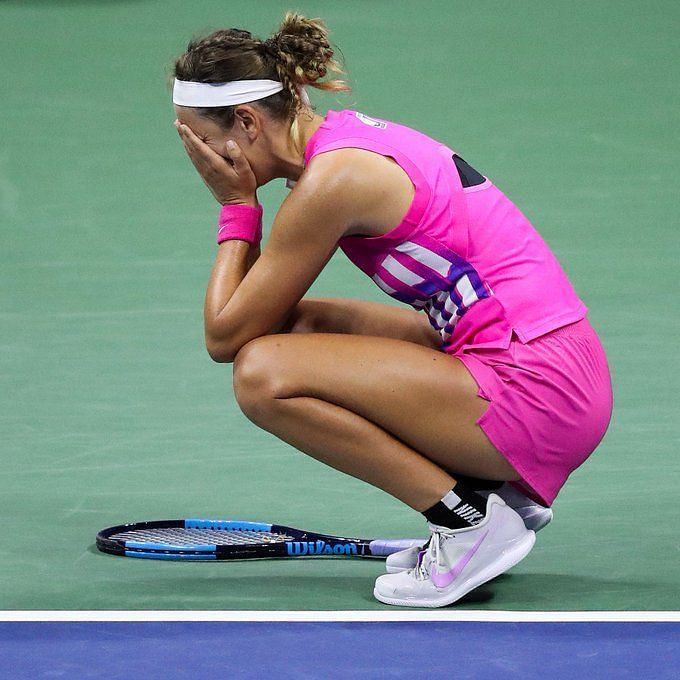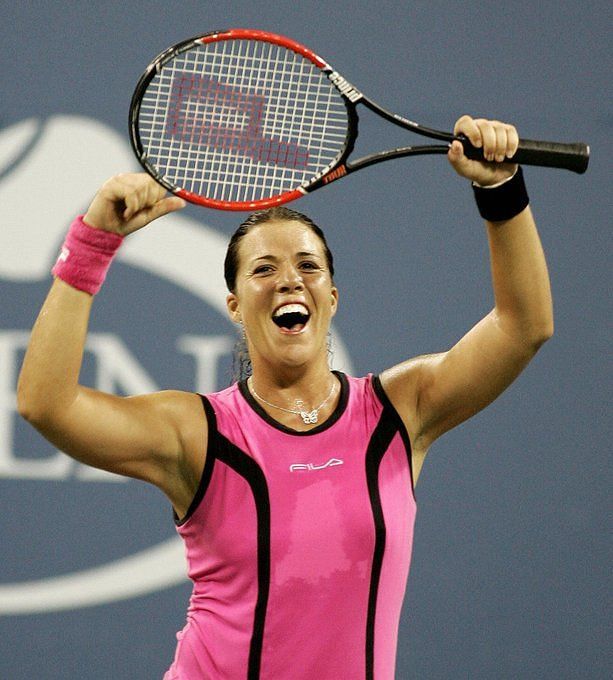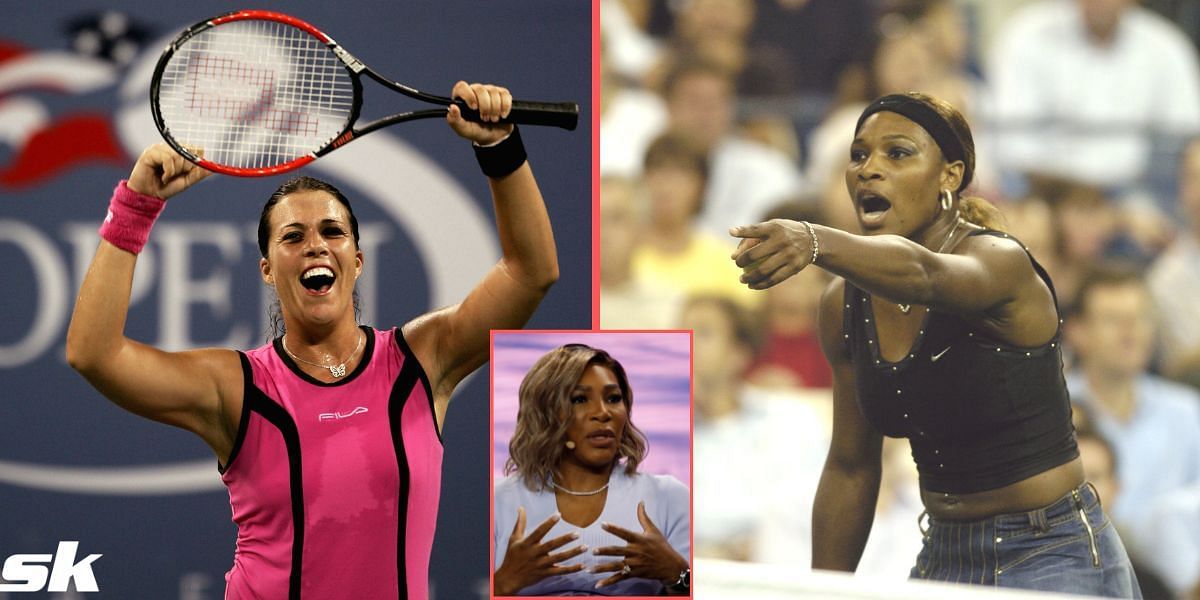
“I was afraid to be Serena because of all the experiences that I've had; I ended up losing because I was afraid to challenge, to be myself” - Serena Williams on her 2004 US Open QF against Jennifer Capriati
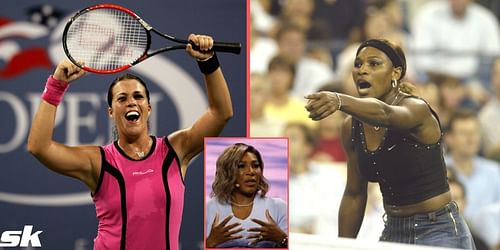
Recalling her 2004 US Open quarterfinal against Jennifer Capriati, Serena Williams stated that she still has trauma from that match. She also said that poor officiating in the contest was the reason the governing bodies of tennis decided to implement the Hawk-Eye system for line calls on the balls.
During the 2004 contest between Williams and Capriati, the 40-year-old endured several bad calls during the final set, with television replays confirming that Williams was being wronged.
In the first episode of the Archetypes podcast, the 23-time Grand Slam champion bared it all with host and friend Meghan Markle, the Duchess of Sussex. Speaking about her bad experiences in tennis, Williams touched on her controversial match against her compatriot Capriati.
"In that match I had this fear of hitting because every time I hit a ball, they would call it out no matter how close it was or how far it was. It just wasn't one thing I'm telling you. The reason that I have trauma from it was because it's been like five things or more. I know the first reason the hawk eye became like a thing was because they were calling my balls out and they weren't even close to the line," she said.
She said it became impossible to play normally as the linespeople kept calling the ball out for no reason. She added that there were other experiences too, which saw her stray away from her true self.
"I was afraid to be Serena because of all the experiences that I've had and I ended up losing a match because I was afraid to challenge, or to be myself. I can't win being someone different, I have to win being Serena. And sometimes that’s more fierce," she said.
Serena Williams also argued that she was treated unfairly for being fierce in her celebrations and believes that men weren't held to the same standards.
"But is it fierce when, you know, guys are saying, come on and pumping their fists? It's pretty exciting. But for me it's pretty – it's aggressive. Or it’s what is, I don’t know, they said that I… oh my goodness, I'll never forget. There's one article that said this guy was passionate and I had a meltdown and I was like, wait, how do I have a meltdown? But this guy's passionate," she added.
Serena Williams received apology for the officiating in her 2004 US Open QF against Jennifer Capriati
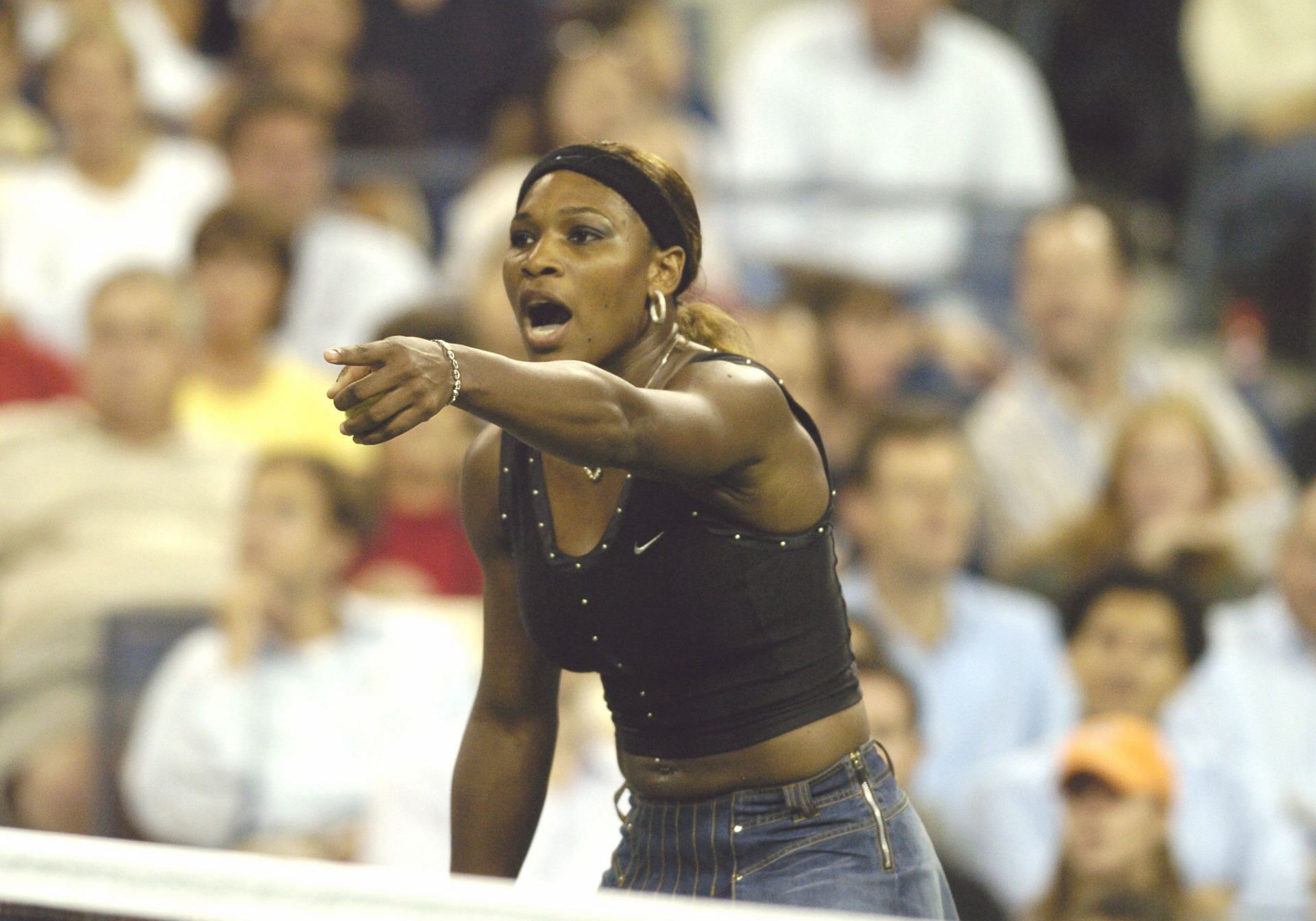
Due to a badly umpired contest, Serena Williams lost 2-6, 6-4, 6-4 to Jennifer Capriati in her 2004 US Open quarterfinal clash. After the match, the United States Tennis Association (USTA) apologized to her for chair umpire Mariana Alves' mistake, with the USTA also stating that they would consider using video replays in the future.
Tournament referee Brian Earley also released a statement acknowledging the bad calls.
"Regrettably, the replay on television showed that an incorrect overrule was made by the chair umpire. A mistake was made and I have discussed the call with the chair umpire. Ms. Alves, a 31-year-old native of Portugal, is not scheduled to officiate another match during the 2004 U.S. Open," he said in the statement.
In the aftermath of the match, Alves was removed from officiating the tournament, though she was still an active presence on the circuit later.
